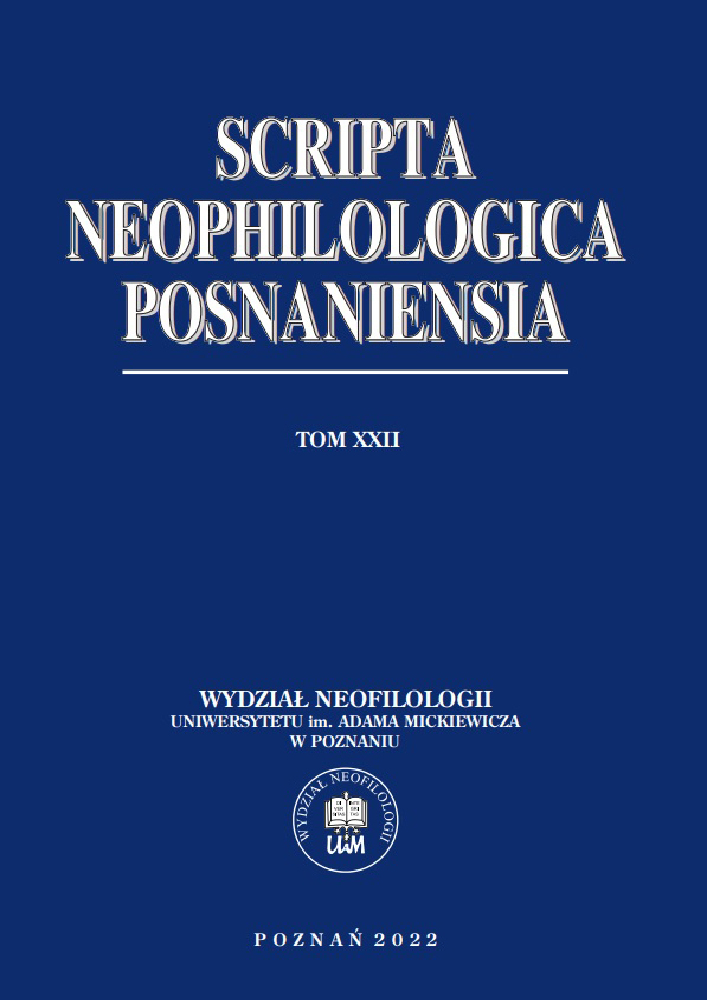Abstrakt
The article, apart from examining briefly the reception of Leonard Cohen`s art and persona by the critics, presents him also as a writer preoccupied with ethical issues. It will be demonstrated that, along with creating his own eclectic spiritual system by synthesizing elements borrowed from different religions and wisdom traditions, Cohen has been also influenced by the socio-political situation in Canada and worldwide. Hence, Cohen`s art will be discussed in relation to the post-Holocaust reality, the Quiet Revolution in Quebec, the sexual liberation, the process of Canada becoming a “postmodern country”, as well as cultural changes, such as the shifting position of the popular culture. The article aims also at highlighting the postcolonial and postmodern elements in Cohen`s oeuvre, inasmuch as Cohen has been argued to be one of the first Canadian representatives of these literary trends.
Bibliografia
Allan, R. 1967. The world of Leonard Cohen: a study of his poetry. Burnaby: Simon Fraser University.
Balfour, S. 1998. No fixed address: Locating Leonard Cohen in Western religious/spiritual culture. Calgary: The University of Calgary (https://libstore.ugent.be/fulltxt/RUG01/001/786/712/RUG01-001786712_2012_ 0001_AC.pdf). Web. 27.10.2021.
Bauman, Z. 1988. Freedom. Minneapolis: University of Minnesota Press.
Berry, P. 2004. “Postmodernism and post-religion”. In: Connor, S. (ed.). The Cambridge companion to postmodernism. Cambridge: Cambridge University Press. 168–181. https://doi.org/10.1017/CCOL0521640520.009 DOI: https://doi.org/10.1017/CCOL0521640520.009
Black, J. 2009. “Charles Axis: Muscle Man”. Smithsonian Magazine (http://www.smithsonianmag.com/history/charles-atlas-muscle-man-34626921). Web. 27.10.2021.
Cohen, L. 1993. Beautiful losers. New York: Vintage Books.
Connor, S. (ed.). 2004. The Cambridge companion to postmodernism. Cambridge: Cambridge University Press. https://doi.org/10.1017/CCOL0521640520 DOI: https://doi.org/10.1017/CCOL0521640520
Deer, G. 1994. Postmodern Canadian fiction and the rhetoric of authority. Montreal: McGill – Queen`s University Press.
Djwa, S. 1967. “Leonard Cohen. Black romantic”. Canadian Literature 34. 32–42.
Docherty, T. 2000. “The ethics of alterity”. In: Lucy, N. (ed.). Postmodern literary theory. An anthology. Oxford: Blackwell Publishers. 140–147.
Dougherty, S. and R. Masello. 1996. “A poet`s retreat”. People Weekly (March 25, 1996). 1 (https://pathfinder.com/ people/960325/features/cohen.html). Web. 27.10.2021.
Douglas, M. 1966. Purity and danger: an analysis of concepts of pollution and taboo. London: Routledge & Kegan Paul.
Flere, S. and A. Kirbis. 2009. “New Age, religiosity, and traditionalism: a cross-cultural comparison”. Journal for the Scientific Study of Religion 48. 161–169. https://doi.org/10.1111/j.1468-5906.2009.01435_1.x DOI: https://doi.org/10.1111/j.1468-5906.2009.01435_1.x
Hammill, F. 2007. Canadian literature. Edinburgh: Edinburgh University Press.
Hanegraaff, W. 1996. New Age religion and Western culture. Esoterism in the mirror of secular thought. New York: Brill. https://doi.org/10.1163/9789004378933 DOI: https://doi.org/10.1163/9789004378933
Hutcheon, L. 1974. “Beautiful losers: all the polarities”. Canadian Literature 59. 42–56.
Hutcheon, L. 2001. The politics of postmodernism. London–New York: Routledge. https://doi.org/10.4324/9780203129876 DOI: https://doi.org/10.4324/9780203129876
Hyde, L. 1998. Trickster makes this world. Mischief, myth and art. New York: Farrar, Straus and Giroux.
Hynes, W. 1993. Mythical trickster figures. Tuscaloosa: The University of Alabama Press.
Koepping, K.P. 1985. “Absurdity and hidden truth: cunning intelligence and grotesque body images as manifestations of the trickster”. History of Religions 24. 191–214. https://doi.org/10.1086/462997 DOI: https://doi.org/10.1086/462997
Kroetsch, R. 1985. “Disunity as unity: a Canadian strategy”. In: Sojka, E. (ed.). (De)Constructing Canadianness. Myth of the nation and its discontents. Katowice: Śląsk. 21–31.
Lucy, N. 1998. Postmodern literary theory. An introduction. Oxford: Blackwell Publishers.
Lucy, N. (ed.). 2000. Postmodern literary theory. An anthology. Oxford: Blackwell Publishers.
Morgan, M. and P. E. Gordon (eds.). 2007. The Cambridge companion to modern Jewish philosophy. Cambridge: Cambridge University Press. https://doi.org/10.1017/CCOL0521813123 DOI: https://doi.org/10.1017/CCOL0521813123
Nadel, I. 1996. Various positions. A life of Leonard Cohen. New York: Random House.
Olkiewicz, A. 2006. “Local discourses in historiographical metanovels by Beryl Bainbridge”. In: Lorek-Jezińska, E., Siek-Piskozub, T. and K. Więckowska (eds.). Worlds in the making.
Constructivism and postmodern knowledge. Toruń: Wydawnictwo Uniwersytetu Mikołaja Kopernika. 285–296.
Pacey, D. 1967. “The phenomenon of Leonard Cohen”. Canadian Literature 34. 5–23.
Perez, I.A. 2012. “Postmodernism in Leonard Cohen`s Beautiful Losers”. Canadian Studies in Europe 10. 25–34.
Radin, P. 1956. The trickster: a study in the American Indian mythology. London: Routledge & Kegan Paul.
Shoemaker, N. 1995. “Kateri Tekakwitha`s torturous path to sainthood”. In: Shoemaker, N. (ed.). Negotiators of change: Historical perspectives on native American women. New York: Routledge. 49–71.
Sim, S. (ed.). 2001. The Routledge companion to postmodernism. New York: Routledge.
Vanhoozer, K. (ed.). 2003. The Cambridge companion to postmodern theology. Cambridge: Cambridge University Press.
Vermeulen, D. 2011. From chaos to art. Postmodernism in the novels of Leonard Cohen. Ghent: Universiteit Gent.
Ward, C. 2008. Like pilgrims to this moment: myth, history and politics in the early writing of Seamus Heaney and Leonard Cohen. Saskatoon: University of Saskatchewan.
Watson Wolfe, B. [n.d.]. The strange case of Leonard Cohen: ‘There is a crack in everything. That’s how the light gets in.’ https://www.leonardcohenfiles.com/bwolfe.pdf). Web. 27.10.2021.
Wyschogrod, E. 1990. Saints in postmodernism. Chicago: The University of Chicago Press.
Licencja

Utwór dostępny jest na licencji Creative Commons Uznanie autorstwa – Bez utworów zależnych 4.0 Międzynarodowe.

